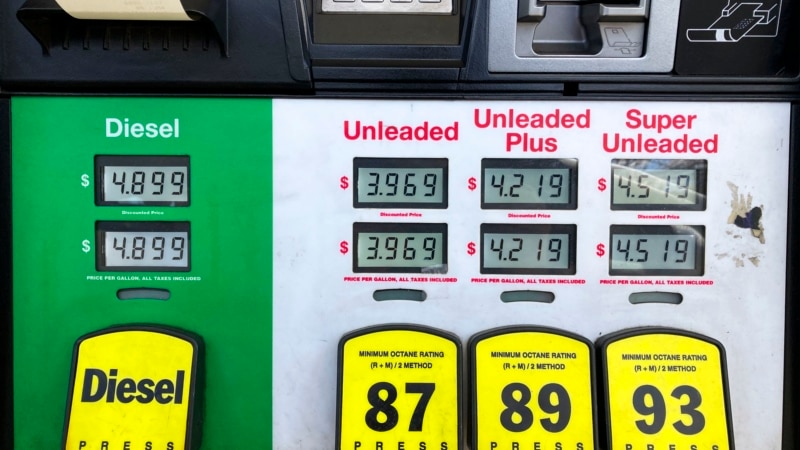
U.S. consumer prices jumped 8.5% in March compared to a year ago, the biggest annual surge in more than 40 years, the government reported Tuesday. Price increases hit American consumers in key segments of the world’s biggest economy, with gasoline costs spiraling for motorists, housing prices jumping and the cost of food up at grocery stores, according to the report by the Labor Department’s Bureau of Labor Statistics. The higher living costs for essential products are hitting consumers where they most feel it — in their wallets — and offsetting or surpassing workers’ bigger paychecks from wage increases. The inflation rate is also overshadowing the rapid recovery of the U.S. economy from the coronavirus pandemic that swept into the country two years ago, with the creation of hundreds of thousands of jobs in recent months and the unemployment rate dipping to 3.6%, near the five-decade-low, pre-pandemic figure. The government's report gave no indication that prices are easing, with inflation jumping 1.2% from February to March, up from eight-tenths of a percentage point from January to February. The March inflation figure was the first that reflected the surge in gasoline prices at service stations following Russia’s February 24 invasion of Ukraine, which roiled world oil markets while also disrupting global shipping and food supplies. According to the motorists’ group AAA, the average price of a gallon of gasoline (3.785 liters) reached $4.10, up 43% from a year ago, although it has fallen back somewhat in the past couple of weeks. Tuesday’s government report showed the energy index increasing 11% in March following a 3.5% increase in February. The gasoline index rose sharply in March, increasing 18.3% after rising 6.6% in February. Higher fuel prices have in turn boosted transportation costs for the shipment of goods, including food. The food index rose 1% in March compared to February. It is up 8.5% compared to the prior 12 months. In an effort to curb consumer spending and cut inflation, policy makers at the country’s central bank, the Federal Reserve, last month approved a quarter percentage point increase in its benchmark interest rate and could raise the rate again at each of its six remaining meetings in 2022. Such rate increases have a direct bearing on borrowing costs consumers and businesses pay, which could cut their spending and possibly curb inflation over the coming months. But the effect of the rate increases is uncertain. Increasing inflation in the United States also could play a key role in November’s congressional elections. Democrats now hold narrow control of both houses of Congress, but polls show voters blaming Democratic President Joe Biden for the increased prices they are paying, which in turn could give Republicans a chance to retake control of the House of Representatives and possibly the Senate.
Most Read